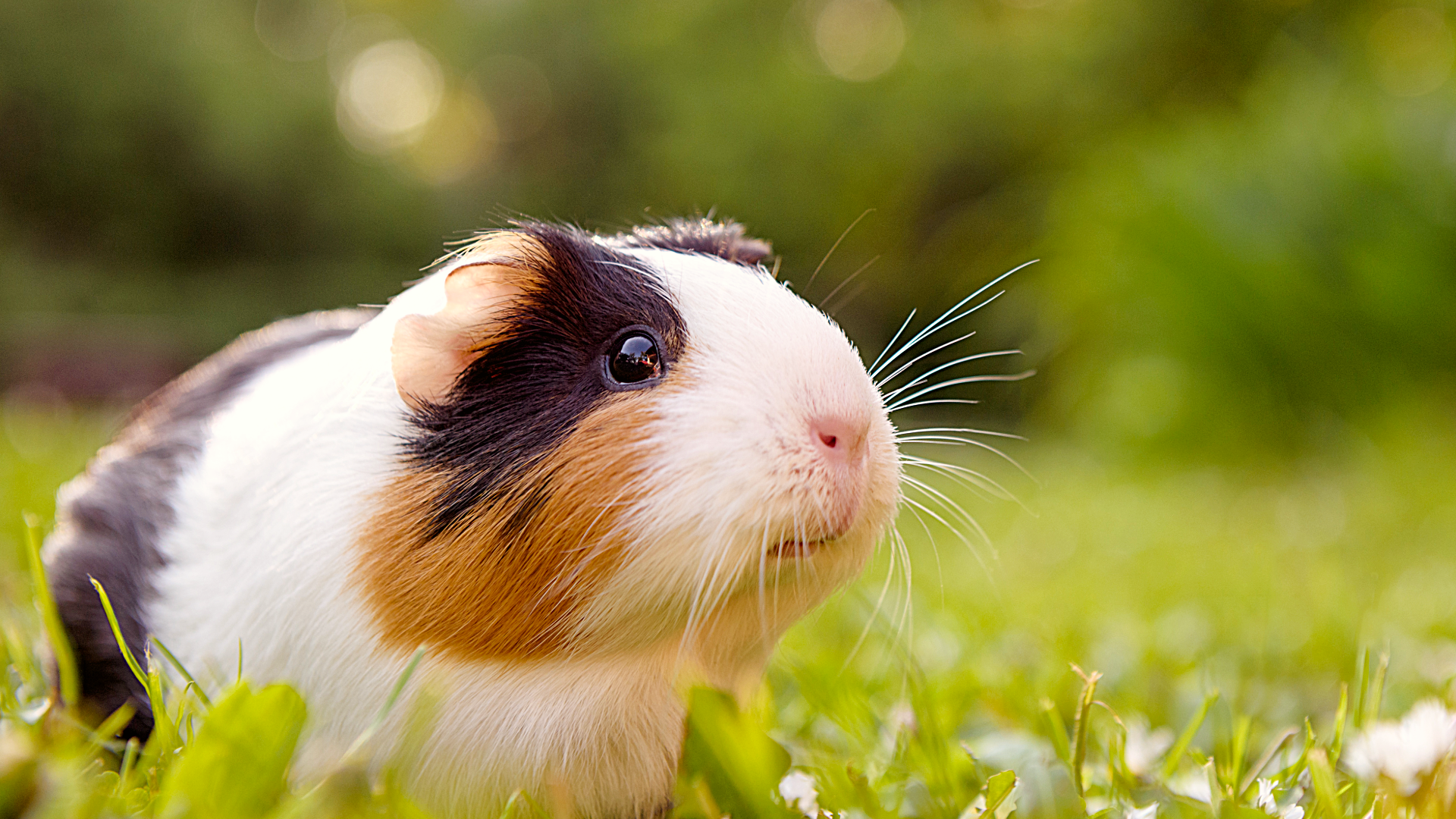Caring for your Guinea Pig
Guinea Pig
(Cavia porcellus)
Basic Information:
Guinea pigs, also known as cavies, are gentle, social rodents native to the Andes mountains of South America. They are herd animals by nature and thrive in the company of their own kind. Guinea pigs are known for their expressive squeaks, whistles, and chirps, which they use to communicate with both humans and other guinea pigs. Their small size, friendly temperament, and relatively simple care requirements make them one of the most popular small mammals kept as pets.
Lifespan:
5–8 years in captivity with excellent care.
Sexing:
Males (boars) and females (sows) can be visually sexed, though young guinea pigs may be more difficult to distinguish.
Enclosure:
Provide plenty of floor space, hideouts, tunnels, and chew toys. Guinea pigs do not climb well, so horizontal space is much more important than vertical height.
Minimum Size:
At least 7.5 sq. ft. (30” x 36”) for a pair, though larger is strongly recommended (playpen-style enclosures are ideal).
Substrate:
Use paper-based or aspen shavings that are dust-free and non-scented. Avoid cedar and pine, as their aromatic oils are harmful.
Lighting & Temperature:
Maintain a 12-hour light/dark cycle using natural room light or indirect lighting.
Ideal room temperature should remain between 65–75°F. Keep the enclosure away from drafts, direct sunlight, heaters, or air vents to prevent stress or illness.
Food:
Guinea pigs require a high-fiber diet and must have constant access to fresh grass hay (such as timothy, orchard, or meadow hay). Offer a fortified guinea pig pellet daily, along with a variety of fresh vegetables and leafy greens. Because guinea pigs cannot produce their own vitamin C, supplementation is required either through specially formulated pellets, vitamin C tablets, or daily servings of vitamin C–rich vegetables (such as bell peppers or kale). Fresh, clean water must always be available.
Socialization:
Guinea pigs are highly social and thrive in pairs or small groups of the same sex. They should not be housed alone, as isolation can lead to stress and depression. Regular, gentle handling helps build trust, but always support their body properly when picking them up. Guinea pigs enjoy floor time in safe, supervised play areas, as well as enrichment items like tunnels, chew toys, and foraging opportunities.
Notes on Varieties:
All guinea pig breeds have the same housing, diet, and social needs. The only major difference lies in grooming:
Short-haired breeds (American, Abyssinian, etc.) need minimal grooming, just occasional brushing.
Long-haired breeds (Peruvian, Silkie, Texel, etc.) require frequent brushing and sometimes trimming to prevent tangles and matting.
With their curious nature and relatively simple care needs, Syrian hamsters make excellent pets for responsible children and adults alike. Their independent personalities and nighttime antics are a joy to observe, making them ideal for quiet households


